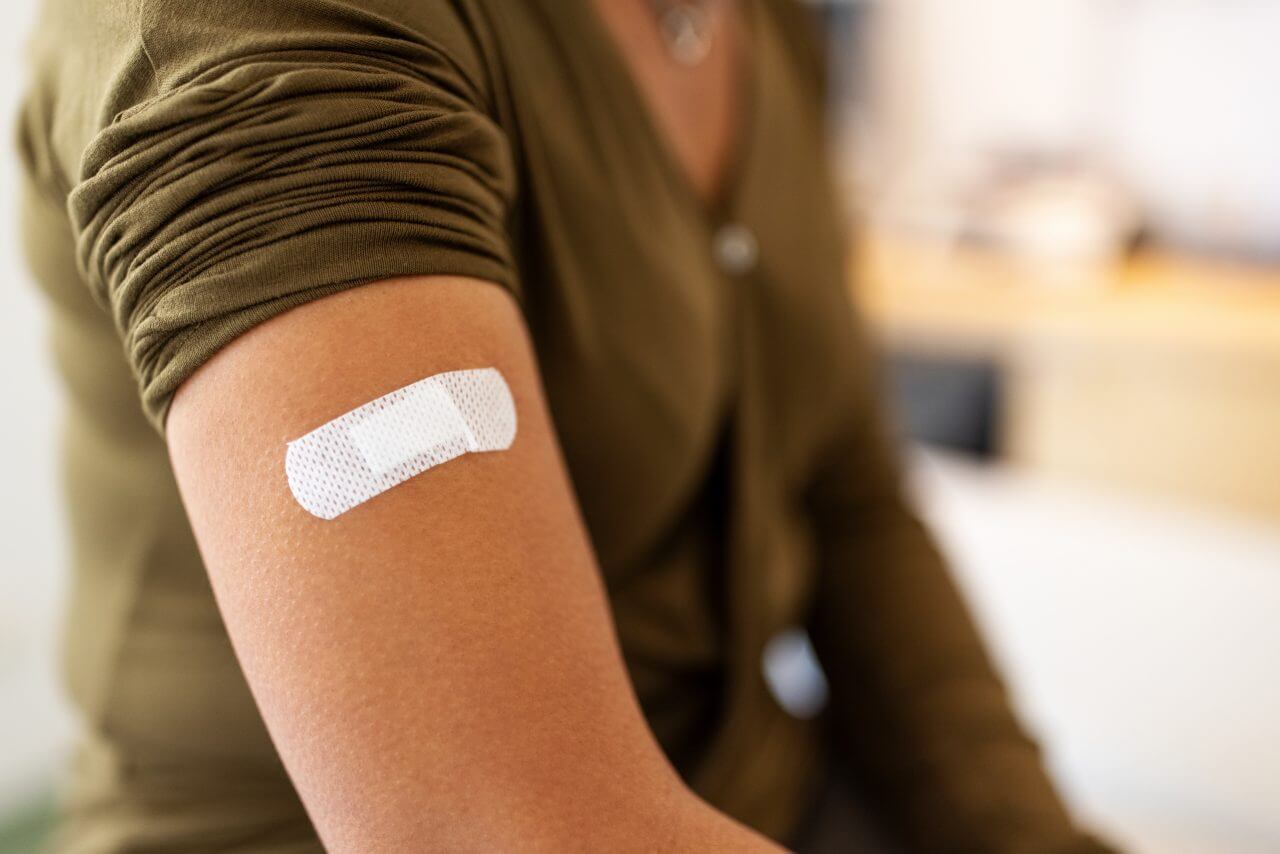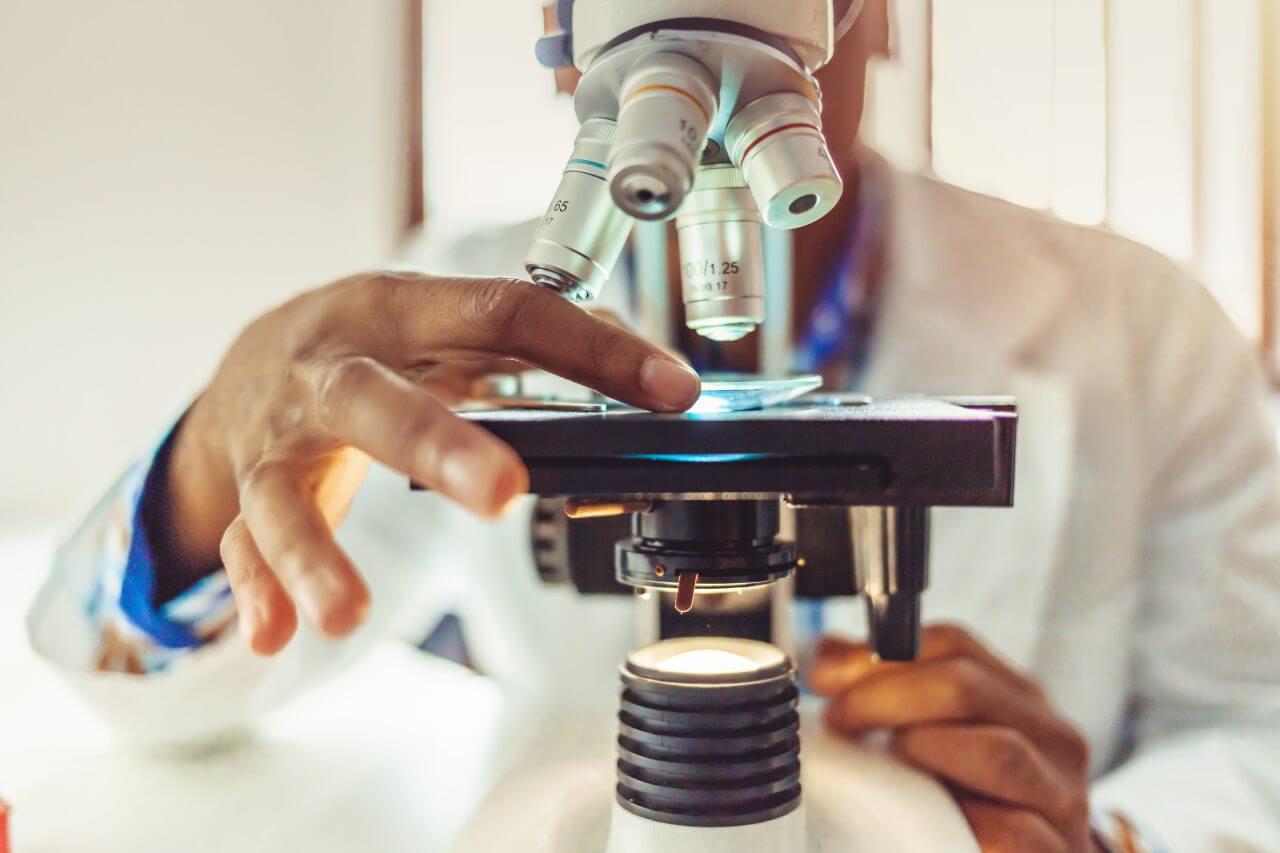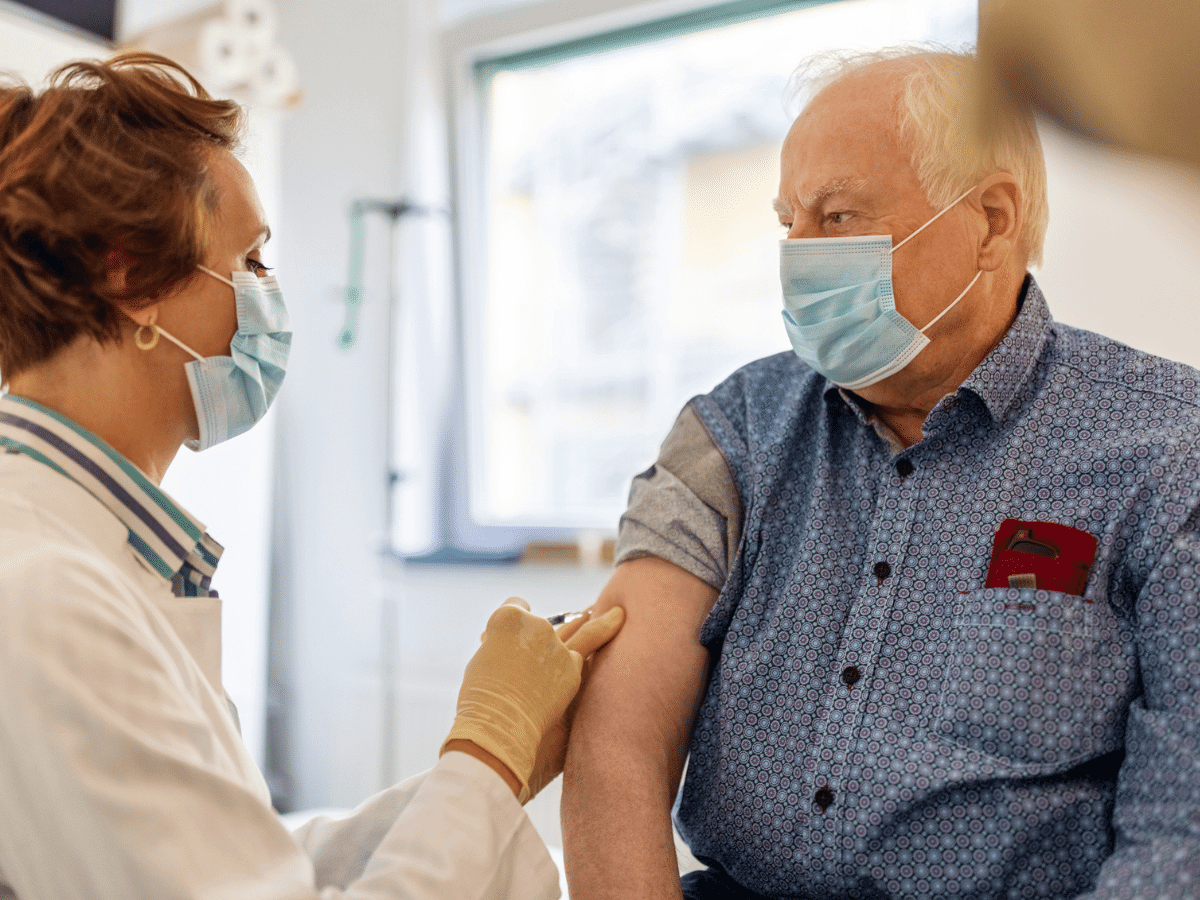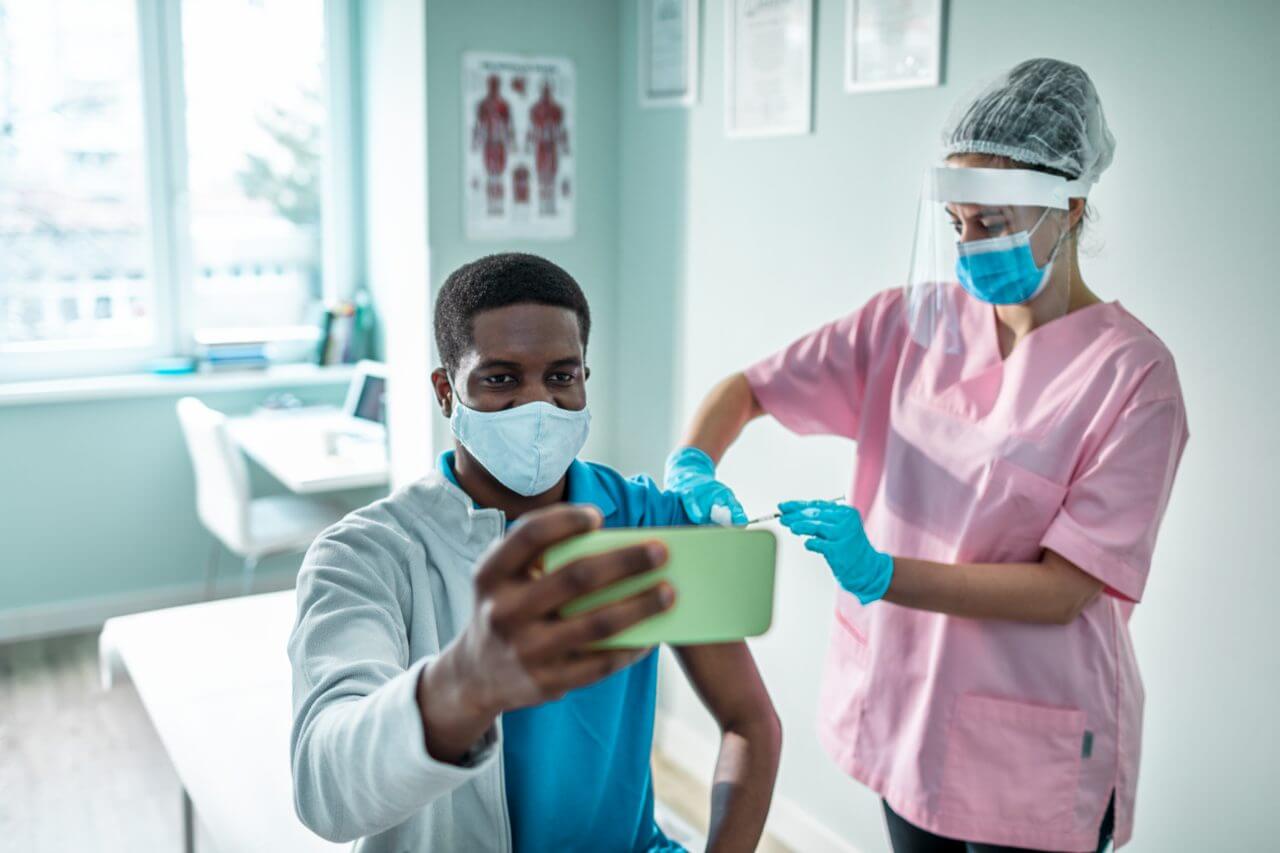How Will the Vaccine Protect Me From COVID-19?

COVID-19 vaccines are carefully evaluated in clinical trials for safety and efficacy. Vaccines from Pfizer and Moderna recently got Emergency Use Approval (EUA) and are currently being administered reporting a 95% effectiveness level. Both vaccines offer significant protection against COVID-19. Based on what we know about vaccines for other diseases, experts believe that the COVID-19 vaccine may help you keep from getting seriously ill even if you do get COVID-19.
How Does the Vaccine Work?
Both the Pfizer and Moderna COVID-19 vaccines are mRNA vaccines, which are a new type of vaccine that uses a man-made copy of a natural chemical called messenger RNA (mRNA) to produce an immune response. They teach our cells how to make a protein – or even just a part of a protein – that triggers an immune response in our bodies. That immune response, which produces antibodies, is what protects us from getting infected if the real virus enters our bodies.
Don’t miss an update – Subscribe to our newsletter to get the health and wellness news that matters most delivered straight to your inbox.
Why Do I Need Two Doses?
The vaccine currently being distributed in the United States requires two doses to achieve the reported 94-95% effectiveness level. Multiple doses are standard for many vaccines.
A vaccine works by exposing the body to a small part of the virus so that the immune system can learn to recognize it. Think of the first dose as a “primer” to help your immune system create the antibodies that will fight the virus that causes COVID-19.
Then, three or four weeks later, depending on which vaccine is used, a second dose “reminds” your immune system. By getting two doses, your immune system gets more opportunities to figure out how to counter a future infection.
The Pfizer COVID-19 vaccine requires two shots 21 days apart. The Moderna vaccine requires two shots 28 days apart.
What Are the Side Effects?
Based on what we know so far, many people will have a mild short-term immune response after getting a COVID-19 vaccine. This is a normal sign that your body is building protection. The side effects that can occur include:
- Fever
- Fatigue
- Headache
- Muscle pain
- Joint pain
- Injection site swelling
- Injection site redness
- Injection site pain
- Chills
- Feeling unwell
Vaccine side effects may happen in 10-15% of people. For most people, these side effects are mild and go away in a couple of days.
Is the Vaccine Safe?
Yes. The U.S. vaccine safety system ensures that all vaccines are as safe as possible. Pfizer ran tests that included more than 44,000 people. The FDA analysis of the vaccine’s safety and effectiveness on people over the age of 16 has said that it found “no specific safety concerns” that would preclude the vaccine’s use. The Moderna vaccine ran tests that included 30,000 people.
The Centers for Disease Control and Prevention (CDC) also developed a new tool called v-safe, a new smartphone-based, after vaccination health checker for people who’ve gotten the vaccine. This will provide an additional layer of safety monitoring to increase its ability to rapidly detect any safety issues.
Will the Vaccine Help Create Herd Immunity?
Herd immunity, also known as ‘population immunity’, is where a population gains protection from a certain virus if a threshold of vaccination is reached. Herd immunity is achieved by protecting people from a virus, not exposing them to it.
Vaccinated people are protected from getting the disease and passing it on, which breaks the chains of transmission. According to recent studies, about 75-80% of the U.S. population needs to be immune to COVID-19 to reach herd immunity.
Can I Stop Taking Safety Precautions After Getting a COVID-19 Vaccine?
No. Experts want to learn more about the protection a vaccine can provide and how long immunity lasts before changing safety guidelines. The CDC recommends following these safety precautions:
- Avoid close contact. Stay at least six feet away from other people when you’re in public and avoid any close contact with someone who’s sick or has symptoms.
- Wear a face covering. Whenever you’re in a public setting, wear a cloth mask or face covering.
- Wash your hands. Frequently wash your hands with soap and water for at least 20 seconds or use an alcohol-based hand sanitizer that contains at least 60% alcohol.
- Stay home if you’re sick. Unless you’re going for medical care, stay home, and avoid public areas.
More Questions About COVID-19 Vaccinations?
If you’d like to learn more about COVID-19 vaccines or have questions about the vaccines currently available, visit our COVID-19 vaccine resource center or the CDC.
Useful Resources and Next Steps:
Why Will a Vaccine for Children Take Longer?
[PODCAST] COVID-19: Where Are We Now? (Dec. 2020 Update)
Find a COVID-19 Testing Site



